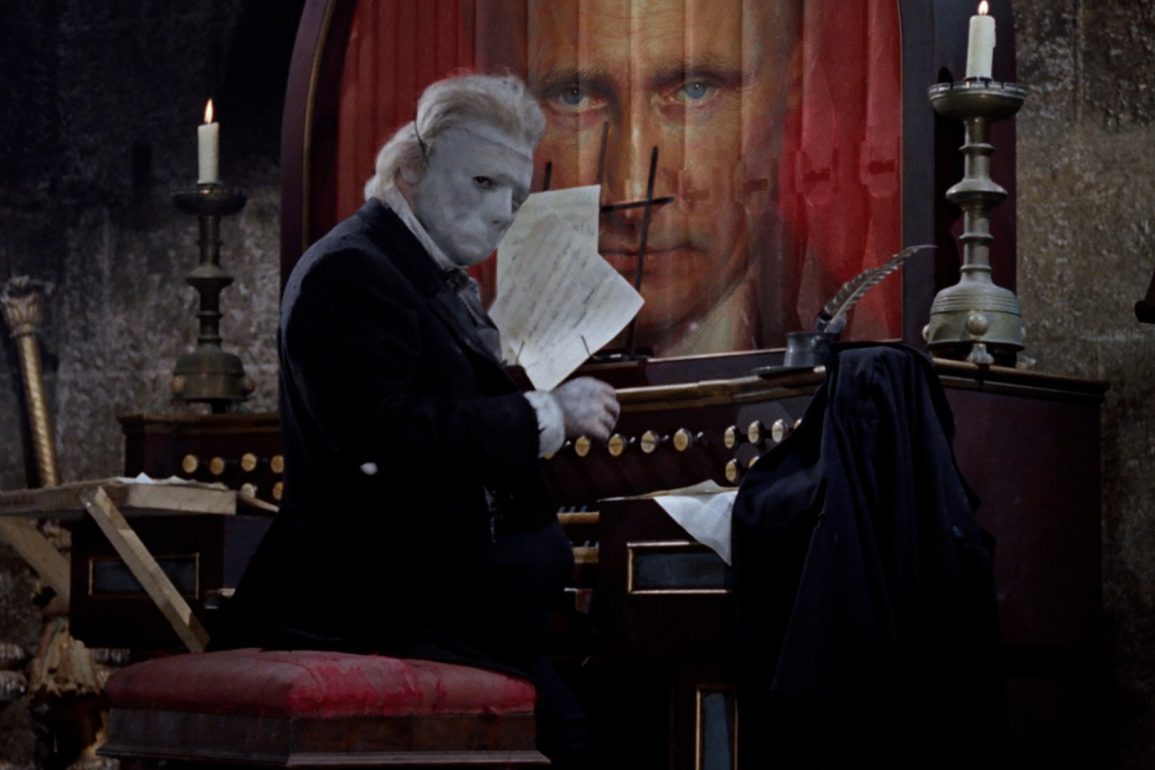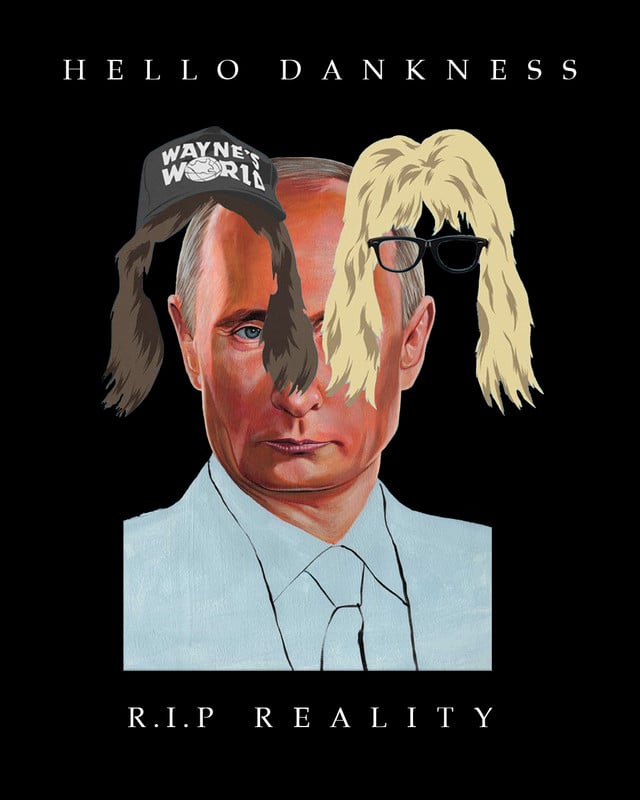How do you satirise a period of history where “truth” or the appearance of it was so close to satire that they were often indistinguishable? Soda Jerk decided the best way was to take the immediate pre-Trump period and the aftermath and scribble all over it with their canny mash-up piece Hello Dankness.
From The ‘Burbs, American Beauty, Wayne’s World, Kendall Jenner’s Pepsi ad, through to Seth Rogen comedies and A Nightmare on Elm Street, American film and pop culture is sampled and looped to create a chaotic but cohesive vision of the dystopia that is the contemporary US.
The Curb had the opportunity to talk to the super smart siblings who break down the break down in Hello Dankness.
Hello Dankness screens at Perth’s Revelation Film Festival on July 13. Tickets are available here.
Soda Jerk – Hello Dankness, 2022 trailer v2 from Soda Jerk on Vimeo.
Firstly, congratulations on Hello Dankness. For many people Terror Nullius was a gut punch Australian culture had long deserved. It highlighted the erasure of marginalised voices from conversations in Australia and put to the fore our history of colonialism which included colonisation of popular culture spaces. When it comes to America and the utter madness that has been the Trump years did you find it more challenging to satirise the post-truth milieu?
We’ve spoken a lot about the difficulty of making satire in these munted times, when reality itself feels so baked and contorted. But it’s not just the pervading weirdness that is vexing, but also how satire positions the viewer. When we made Terror Nullius we were interested in generating a collective experience of solidarity on the left, by using satire and revenge to humiliate the enemy. But the political landscape now is even more divisive and divergent than it was then. So with Hello Dankness we weren’t interested in further entrenching existing political skirmishes, things feel far too nuanced and urgent for that. Instead we have attempted to complicate satire, to mess with it by leaning into the more ambiguous and encrypted tonality of shitposting and memes.
Collage, bricolage, and Détournement (as employed by the Situationists) have long been a way to politically reassemble cultural artefacts. The mash-up is a contemporary version of this practice. Is there any philosophical school of thought that you are particularly attracted to in terms of praxis?
We’re down for the Situationists, but tbh we’ve been more deeply impacted by the sample cultures of experimental hip hop and breakcore. It’s really in the audio realm that the complexity and density of practice has imploded the turgid theoretical framework of sampling as a relation between the original and the copy. What emerges is an understanding of sampling as an insanely complex clusterfuck of contexts and affects, a network of contagions. In this post-pandemic moment it perhaps sounds a little sus to be nominating virology as model for thinking sample practice, but these were the kinds of research strands we were tracking when we started out in the early 2000s. We’re indebted to the kind of thinking that was emerging from the Cybernetic Culture Research Unit in the UK and that continues to coalesce around the electronic music label Hyperdub.
You chose mostly the suburbs to represent America in Hello Dankness, is this because you see America as relishing the idea of a pristine suburban life that is often divorced from political reality?
We were drawn to the suburbs because it is the classic site of the American dream, the milk-and-cookies mythspace of hetro-normie family life. In Hello Dankness we’re especially focused on the suburban films of the 80s and 90s, because this is the period that precedes the cataclysmic social changes wrought by the mainstreaming of the internet.
Memes come and go, in fact a dank meme is one that can be both virally successful and one that is overused to the point of becoming irrelevant. Do you think meme culture has intrinsic value?
We understand memes as a linguistic ecology, so for us they don’t have an intrinsic morality. They can function as vectors for the circulation of profound ugliness and malice, but also beauty and nuance and radicality. But our interest in memes goes beyond the language of an internet subculture, we’re into the way that the viral logic of memetics has become the defining cultural paradigm of our time. Our feeling is that the cumulative impact of the internet has lead to a breakdown of consensus reality, and the emergence of an information space ruled by the memetic logic of virality and contagion.
When you choose what films and music to include in your work none of it is random. There is a lot of Andrew Lloyd Webber in Hello Dankness and he is famously conservative. There are a lot of subtle rebukes in the film. Do you think people pick up on them?
This comes back to the idea of sampling as a form of encryption. Not everyone is meant to get everything all the time, and we welcome the ways that each audience will necessarily experience the film in their own way. There is no perfect all-knowing viewer, just collectives of shared recognition that are incessantly forming and dispersing from moment to moment as the film unfolds.
As Australian artists living in NY do you think you have a particular POV that informs how you perceive American politics? One part that was noticeable was a weariness with America that is shown in the last segment that features Todd Solondz’s Weiner Dog. Is that something that resonates with you as nominal outsiders?
Our recent feature films have been about problematising notions of nationalism and belonging, so we find the idea of being an insider a bit suspect. But documenting those years in the US was personal for us, and not something we could have ever attempted if we hadn’t been based in NYC for the last decade. Part of our intention with Hello Dankness was to create a personal ledger of the time, what it felt like to live through this moment, so it’s a very earnest document in that way. The devastation and despair of American politics is something we feel gutted about, and is a feeling shared by so many of our friends in the US and beyond.
Both Hello Dankness and Terror Nullius are almost intangible works of art because they will never get traditional licensing. In many ways they are contemporary “happenings” is that something that interests you when creating? The impermanence of the work?
As a film that emerged from the isolating stank of the pandemic, we always wanted Hello Dankness to be viewed collectively and IRL. In this era of Netflix death-scrolling, it feels like there’s something fresh again about being trapped in a cinema space with strangers to share a chunk of uninterrupted time. We don’t take it for granted that we are stealing a bit of the viewer’s life that they won’t get back, and we hope to honour that by creating an experience of cinema that’s entirely singular.
Are there any artists who have influenced you and whose work you would consider crucial for people to discover?
Our personal pantheon of queers and thieves and sample mystics includes usual suspects like Jean Genet, William Burroughs, Fred Moten and Genesis Breyer P.Orridge. But there’s also a whole other parallel universe of deep inspiration for Hello Dankness that hails from elsewhere. Pods and discords like Do Not Research, New Models and TrueAnon. The demented breakcore of Passenger of Shit and vaporwave throwbacks like Macintosh Plus and Chuck Pearson’s Eccojams. For political takes we leaned Intercept, but we’re not beyond hate-listening the Red Scare. For high theory we returned to Bifo and Baudrillard, and for low theory we studied the stoner oeuvre of Seth Rogen.
Intersectionality is at the core of your work. What does that term mean to you?
Feel like there’s been a lot of linguistic drift in how intersectionality is understood, it’s a term that has taken on some nefarious contortions since its recuperation by crap-stage capitalism. We’re interested in the ways that intersectional politics can be generative of solidarity and care, and not a cover story for further calcifying identity categories into competing market entities.




